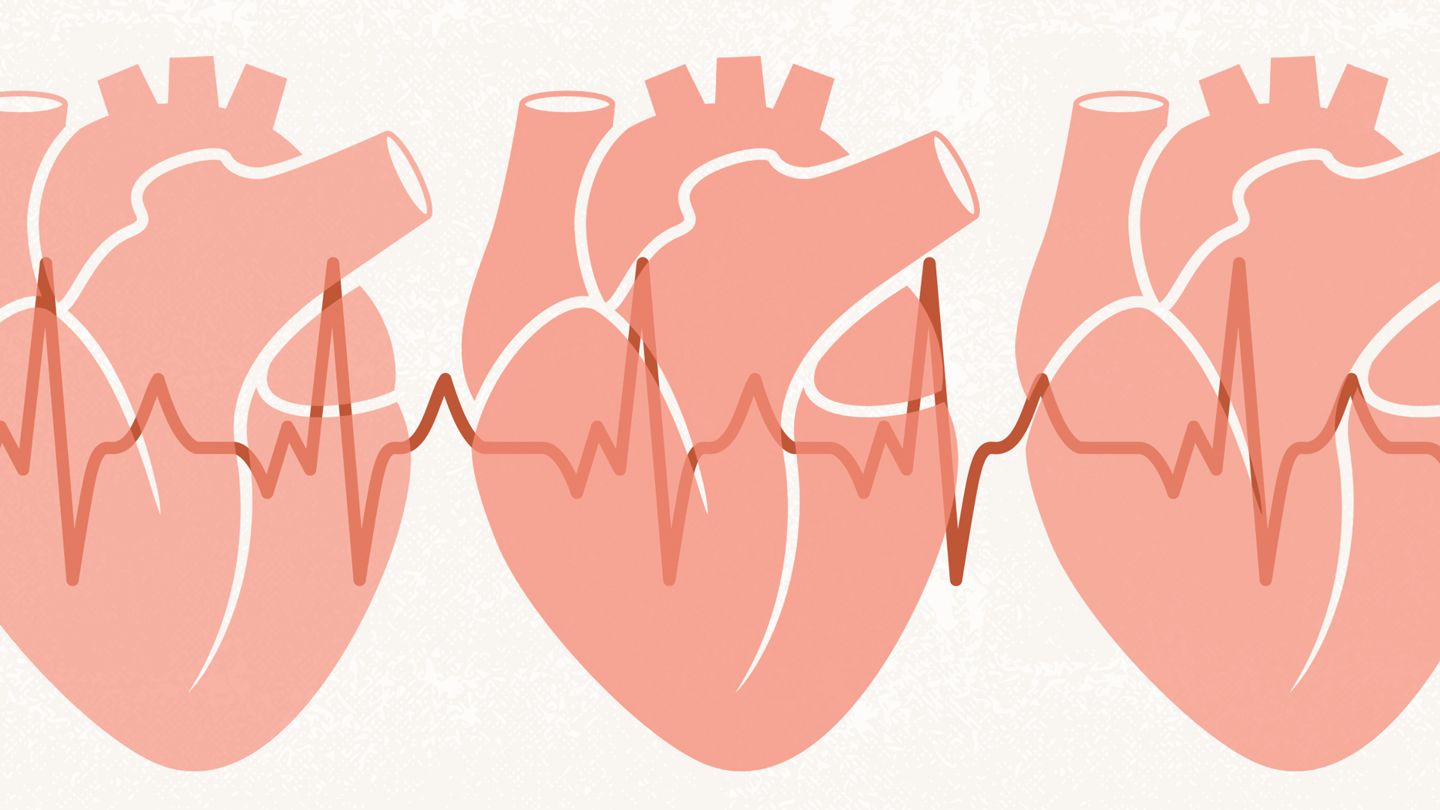A Nasal Spray for Rapid Heartbeat Disorder Could Be Best Option for Self-Treatment, Study Shows

A carry-with-you nasal spray may be able to treat bouts of paroxysmal supraventricular tachycardia (PSVT), a type of arrhythmia that affects nearly two million Americans each year.
People who have PSVT — which is also known as supraventricular tachycardia — have temporary bouts of extremely rapid heart rate caused by extra electrical pathways between the heart’s upper and lower chambers.
“If patients can’t stop their rapid heartbeat on their own, they have to go to the emergency room, where they have to get an injection of a drug to stop their arrhythmia,” says James Ip, MD, director of cardiac pacing and implantable devices at Weill Cornell Medicine in New York City.
The experimental nasal spray, a drug called etripamil, could offer an effective solution for these temporary occurrences that people can use in the moment, without medical supervision. The only current option is vagal maneuvers, which stimulate the vagus nerve through massage, coughing, gagging, finding the pulse in one’s neck and pulsing, or bearing down as if you’re having a bowel movement, per StatPearls. These movements can sometimes prompt the vagus nerve, which is a critical part of the parasympathetic nervous system, to slow heart rate.
“But the results are variable and they don’t work for everyone,” says Dr. Ip.
Promising Results From Research
In the new study, published Wednesday in the Journal of the American Heart Association, Ip and his team expanded upon a previous randomized, placebo-controlled clinical trial for etripamil. Etripamil is a calcium channel blocker that works in the same way as intravenous drugs given to patients at the hospital, but in nasal spray form. The drugs present calcium from entering cells in the heart and arteries, which causes them to relax and open, slowing heart rate.
People self-administer the nasal spray, which is portable and can be stored at room temperature, as needed — one shot in each nostril. Each cartridge contains two doses. If one dose doesn’t begin to slow the heart rate, people can administer the second dose, Ip says.
The previous trial, published last year in the journal Circulation: Arrhythmia and Electrophysiology, found that self-administered etripamil is a safe and effective treatment for PSVT episodes. Nearly 55 percent of patients were able to restore their normal heart rhythms within 30 minutes of taking etripamil, compared with 35 percent who took a placebo.
The new study went a step further to test how people would do with the new drug in a real-world setting, where they would use it when needed, get a refill, and use it again when their next episode occurred. Of the 169 patients enrolled, 105 self-administered at least one dose of etripamil during the study period, for a total of 188 episodes. Forty people treated two episodes.
For these people, etripamil restored normal heart rhythms within 30 minutes about 60 percent of the time, and within an hour about 75 percent of the time. For those who used it twice, 63 percent returned to normal after 30 minutes. While most of these people did respond to the medication, about 25 percent did not during either episode.
Nasal Spray Could Be Alternative to Surgery
According to Ip, Milestone Pharmaceuticals, the company that makes etripamil, plans to submit a new drug application to the U.S. Food and Drug Administration (FDA) next month. It will likely be up to a year before the FDA makes an approval decision.
“This is one more tool in the toolbox, but a very welcome one,” says Gregory Marcus, MD, associate chief of cardiology for research at UCSF Health in San Francisco, who was not involved with either trial. “It’s a niche that is needed. Patients with PSVT will often ask all on their own, ‘Is there something I can take as needed for these episodes?’”
According to Dr. Marcus, a surgery called catheter ablation, in which a surgeon inserts a thin tube into pathways in the heart to break up tissue that may be causing electrical pulses to misfire, is the only way to fix PSVT for good.
While surgery may be the best option for people who have frequent bouts of tachycardia — a heart rate that is 100 beats or more per minute higher than normal resting rate — people who only have occasional episodes often do not want to undergo surgery.
For those people, daily medication may also be a frustrating option, since their heart rate is normal most of the time, Marcus says. For those people, an as-needed self-administered drug like etripamil could be an ideal option.
“It may not make sense to take a drug every day to prevent something that happens so infrequently, but there are no great options for patients to self-treat PSVT,” says Ip. “That’s where this drug comes in.”









